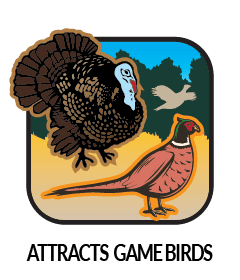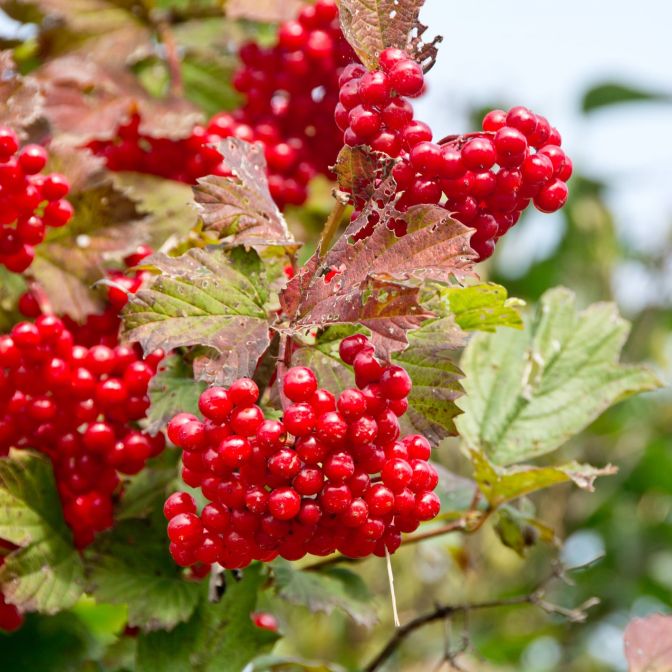Highbush Cranberry
Plant Type: Dormant, bare-root
Zones: 2-7
Soil Type: Clay & Loamy Soils
Site Selection: Full Sun, Partial Sun
Mature Height & Width: 8-12' Height and 8-12' Spread
Growth Rate: Moderate - 12-24" per year once established
Moisture Requirements: Average to wet soils






Highbush Cranberry
Viburnum trilobum
This Highbush Cranberry is also known as the American Cranberry Bush. This self-fertile selection is a dense bush in the Viburnum family that produces edible berries in autumn. It begins to flower in white clusters during spring at about 5 years of age and will also begin to produce berries at that time. Provides an excellent color of red, yellow orange and burgandy in autumn. The bright red fruits often persist on the plants well into the winter which makes it a great winter food source for wildlife and provides winter interest. A favorite for many birds including game birds such as grouse.
This selection is also known as the American Highbush Cranberry.
This selection is the real deal, not the bitter tasting cousin that some others sell. The Highbush Cranberry is often used as erosion control along creeks and streams since it will tolerate wetter soils. This selection will tolerate some shade, but will produce the most berries in a mostly sunny location. The Highbush Cranberry will grow in soils which have sand content in them as long as regular moisture is available. This shrub will not tolerate drought very well.
Common uses for the Highbush Cranberry:
- Cranberries are harvested and eaten raw or made into pies and jams
- Hedge or privacy screen
- Lower story of a windbreak
- Attracts many types of wildlife including bees and butterflys
This is a must have addition to your hunting plot or wildlife viewing area. An important winter food source, the berries remain on the bush well into winter and stay above the snow cover. The Highbush Cranberry provides berries which are known to be eaten by deer, moose, foxes, raccoons, chipmunks, squirrels, skunks, mice, rabbits, grouse, pheasants, robins, cedar waxwings, and other songbirds. The berries are not normally eaten by birds until after they have frozen and thawed several times. Provides and excellent food source and makes great cover for holding grouse on your property.





